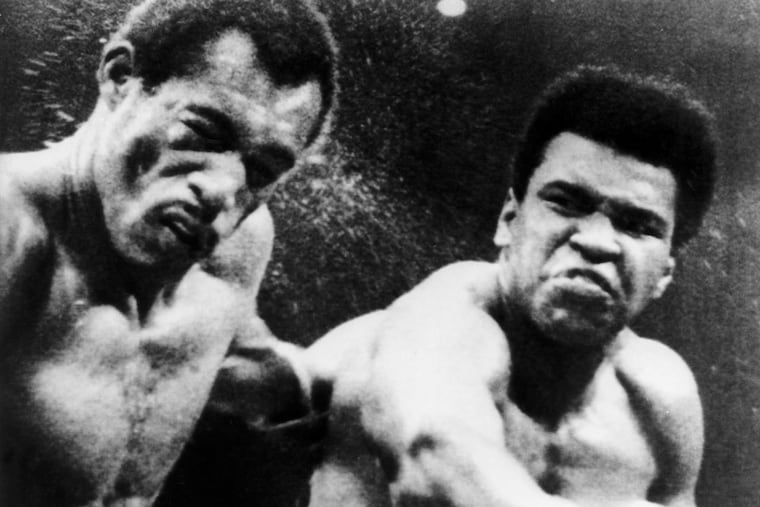Long-lost Muhammad Ali interview surfaces in Philly | Stu Bykofsky
Curt Block, 79, was performing a ritual of moving, the one where you go through bags and boxes to decide what is kept and what is tossed. He never dreamed he'd find treasure among the trash.

Curt Block was performing a ritual of moving, the one where you go through bags and boxes to decide what is kept and what is tossed. He never dreamed he'd find treasure among the trash.
Block, 79, was relocating a few weeks ago from the 38th to the 37th floor of his Center City high-rise, his first move since he left his native Manhattan for Philadelphia in 2002. He had been a journalist in his youth before switching to PR, rising to the executive suite at NBC-TV in Rockefeller Center before he retired.
Digging in a carton, Block found a box of Scotch audio tape with "11-63" written on the plastic reel and a note on white paper in his own hand:
Cassius Clay, Whitey Ford, Gary Peters
That switched on the memory machine, going back 55 years.
Block was in the Army, and 1963 was the second year of his dream assignment — covering sports for the Armed Forces Radio Service, based in Midtown Manhattan.
"I was a newsreader," says Block, "basically rip and read," meaning he tore copy off a teletype machine and read it over the air. Per Department of Defense policy, what he read was broadcast to our military overseas, not in the United States.
"Occasionally we would go out to a sports venue for a remote," he tells me, but Block did only about two dozen interviews during his time with the network.
He thinks the tape might have been a parting gift from his buddies — interviews he'd done with two baseball players and a rising 21-year-old boxer, Cassius Clay, who later changed his name to Muhammad Ali. Block was 25.
"He had been in our building promoting a record album he had coming out" when someone suggested he stop in at the Armed Forces network, Block remembers. Clay had an unerring love for self-promotion and never found a microphone or a camera he didn't want to caress.
If Block had Clay on tape, it would be a long-lost interview, but was it on that tape? Or would it be an embarrassment like Geraldo Rivera's episode with the Al Capone vault? Block had no way to play the tape.
He got a friend to ask Jerry Blavat, and sure enough, the Geator hooked Block up with a company that could play the tape, and Block had it transferred to CD.
For the first time, he heard his own interview:
Block opens with questions about heavyweight champion Sonny Liston's successful defense of his title against Floyd Patterson. Friendly and gregarious, in tones sweet as syrup, Clay calls both of them bums, says Liston "is the tramp, and I'm the champ."
The only thing Clay wouldn't talk about was the record album he'd come to New York to cut for Columbia Records. Block tried to cajole Clay into revealing whether it would be poetry (mostly the doggerel he recited to promote fights) or spoken word, or even song. Clay would not drop even the tiniest hint.
"I got the album," Block says.
"Back then?" I ask.
"No, last week. You can get anything from Amazon," he says. The vinyl album sells for about $60, but Block bought the $6.20 CD. "It is poetry, his shtick," says Block. "Some of the cuts are pretty good."
Block's interview runs a bit more than eight minutes and ends abruptly in mid-sentence. He guesses it was accidentally cut short by the person copying the interview.
So it's not Al Capone's vault — but it is an interview with Clay that was never heard in the States. Block wonders if it might have some value to a museum or to a collector of Ali memorabilia.
Now that people know it exists, he may find out.